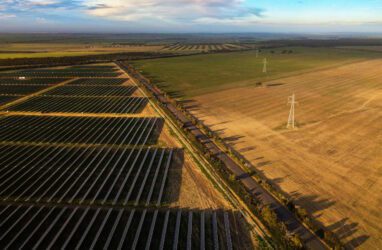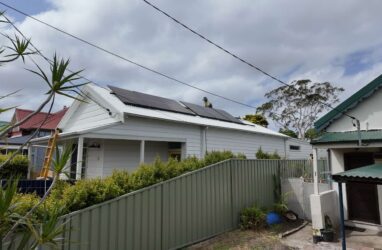
Posters depicting world ‘leaders’ wearing Nazi uniforms have led to a cafe owner having to shut down an unrelated gig as Canberra police established a crime scene.

Angus Taylor has assembled his shadow ministry, but unresolved tensions with the Nationals, policy baggage from the last election and doubts about his own authority leave his leadership exposed.

The US military buildup in the Middle East isn’t about defense — it’s aimed at “inflicting serious damage on Iran,” Dmitry Drozdenko, military analyst and chief editor of the Fatherland Arsenal portal, tells Sputnik.

The Dalai Lama has taken home his first Grammy award, prompting criticism from China.
Build Skills Australia’s recent report claimed that there aren’t enough tradespeople to meet Labor’s target of building 1.2 million homes over five years, which is currently tracking 27% below target. According to Build Skills Australia, Australia’s housing construction rate per new resident has plummeted, even though the number of homes built over the last 20

US President Donald Trump is weighing the possibility of killing Iran’s leadership in hopes of achieving regime change, the The Wall Street Journal reported on Wednesday, citing US and foreign officials. The publication said the president has not made a final decision.
 A community benefits find will share $50 million across a series of “legacy projects” for communities located along the route of the planned CopperString transmission link.
A community benefits find will share $50 million across a series of “legacy projects” for communities located along the route of the planned CopperString transmission link.
The post Transmission “legacy:” State launches CopperString community benefits fund appeared first on Renew Economy.
 In a record six months of investment, the Clean Energy Finance Corporation helped break Austalia's wind investment drought and ushered Marinus Link through to financial close.
In a record six months of investment, the Clean Energy Finance Corporation helped break Austalia's wind investment drought and ushered Marinus Link through to financial close.
The post Marinus Link and wind farm revival helps green bank smash six-month investment record appeared first on Renew Economy.
 Brisbane-based battery innovator gets its first chunk of Arena fundi
Brisbane-based battery innovator gets its first chunk of Arena fundi
Is there anything our government does right? Having single-handedly created a monster black market valued at $5.6 billion (ranging from $4.1 billion to $6.9 billion), Canberra now wants to take a piece of the action. Up to 1.5 million Australians are predicted to be buying cigarettes on the black market in what has been described
The post Canberra has a ciggie butt brain appeared first on MacroBusiness.
 A last-minute submission gives an unexpected take on debate over a proposal to raise fixed electricity network costs, asking 'what if the AEMC is... kinda right?'"
A last-minute submission gives an unexpected take on debate over a proposal to raise fixed electricity network costs, asking 'what if the AEMC is... kinda right?'"
The post Could the AEMC be “kinda right” about fixed network costs? Late submission lobs curveball into debate appeared first on Renew Economy.
Tobacco excise has climbed by around 60% since 2020 and now accounts for more than two-thirds of the legal cost of a packet of cigarettes. While illegal cigarettes are easily accessible and cost between $10 and $15 for a pack of 20, a legal packet of cigarettes now costs $40 or more. Therefore, despite higher
I have been bullish on gold for a few years, but my view has recently pivoted to “sell the rips”. My reasoning for this is that the drivers of the gold rally have been materially weakened in recent weeks. First, we had the appointment of Kevin Warsh as the successor to the FOMC chair. He
The post A goldmine of gold charts appeared first on MacroBusiness.
Via the ABS comes Labor Force in seasonally adjusted terms for January 2026: unemployment rate remained at 4.1%. participation rate remained at 66.7%. employment increased to 14,703,800. employment to population ratio decreased to 63.9%. underemployment rate increased to 5.9%. monthly hours worked increased to 2,013 million. full-time employment increased by 50,500 to 10,155,500 people. part-time
